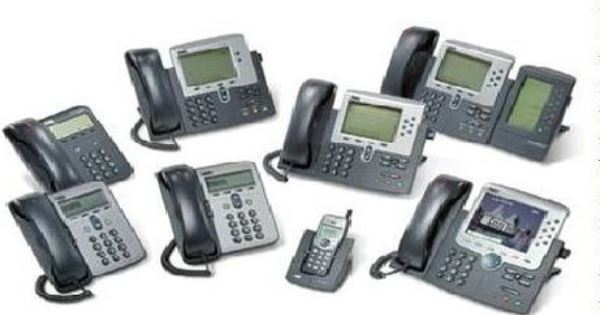Telecom
The Odds of Fixed Line Service in Broadband Penetration

Among the different channels of telecommunications service delivery is fixed wired which involves direct to home connections against the common mobile system.

This system was prominently used in the early days of telecommunications services in Nigeria by defunct Nigeria Telecommunications Limited (NITEL), the reliability and quality service delivery of this system is not in doubt. However, the advent of mobile in the ecosystem dealt a big blow on fixed line service that today is the list used and patronised even where the service is available.
According to Nigerian Communications Commission’s recent statistic on fixed wired line subscription as at September 2019 there are only 107,250 subscribers of services through this channel dropping from 107,949 in January the same year.
More so, according to the Africa Digital Outlook 2019 report from market research firm Ovum, “fixed broadband household penetration in Africa was about 8.5% at end-2Q19, lower than in any other world region, except Central and Southern Asia.”
Sharing his thoughts with Nigeria CommunicationsWeek on the potentials of fixed line services, Engr. Olusola Teniola, president, Association of Telecommunications Companies of Nigeria (ATCON) said: “Fixed-line services complements mobile services and in more developed economies and due to legacy issues acts as the foundation and primary access to telecommunication services.
“However, in Nigeria and with the death of NITEL the gradual decline and withdrawal of fixed-line services to the home, means that a great number of fixed-line supplementary services taken for granted in other climes and well-proven productive enhancing features available on the fixed-line networks are not delivered on the mobile networks deployed in Africa, especially Nigeria.
“With fiber now being the chosen media for fixed-line networks going forward it is very apparent that FTTH deployments will provide higher levels of data thru put and higher levels of Quality of Services for live streaming media at both 4K and 8K definitions”.
In a Speedtest Global Index, on a global level, fixed broadband speeds were nearly twice as fast as those on mobile in 2018. The world’s average download speed on fixed broadband was 46.12 Mbps, 26.4% faster than last year. Upload speed increased 26.5% to 22.44 Mbps.
All said, though, both mobile and fixed broadband speeds increased at a slower rate in 2018 than they did in 2017.
Where we got it wrong
Mohammed Rudman, managing director, Internet Exchange Point of Nigeria (IXPN) said: “The ship has sailed – We allowed the largest fixed telephone network operator to go under, NITEL would have been the perfect vehicle to deliver fixed broadband.
“Most countries strengthen and privatize their national carrier before providing license to other operators that is why today companies such as British Telecoms, France Telecoms and South African telecoms are still in existence. Unfortunately building such companies requires huge investment; hence it would be very difficult to go that route these days, especially with advent of wireless technology.
Teniola explained that: “There is a unwritten understanding that until there is a compelling fixed-line business case demonstrating a rate of return that exceeds that of mobile service business case, it is virtually impossible for any investor to fund capital to rolling out FTTH on a large scale.
“Currently, in Africa there are close to 800m unique mobile subscribers and with the advent of 5G the argument to support fiber-to-the home is going to be challenged and further supports the argument that fixed-line networks are viable for backbone, enterprise and metro network deployments and possibly in support of fiber-to-the-Towers, however, last-mile wireless technologies will be the dominant access medium that supports the return of investments operators across the continent seek.
He urged Government MDA(s) as a way forward to adopt fixed-line FTTB/P connections as part of their private voice and data networks that can connect the various government data centers, government offices and parastatals under the e-Gov project. This can then be extended to interconnect with State Governments (FTTB/P) private networks to provide a secure and scalable communication infrastructure as the Government digitises and digitalises its current processes.
Telecom
MTN Says New N6.98 USSD Charge Won’t Affect Airtime Recharge

Lynda Saint-Nwafor, chief Enterprise business officer, MTN Nigeria, has assured the network subscribers that the new end-user billing system for the use of USSD services will jot affect them.

USSD, otherwise Unstructured Supplementary Service Data codes are commonly used for banking transactions, airtime recharges, and other mobile services.
The telco said that there is no significant impact or change other than the fact that they will now pay the same N6.98 per session (120 seconds) with their airtime instead of direct bank debit.
Saint-Nwafor, said this during a chat with MTN MIP fellows, explaining that the Central Bank of Nigeria (CBN) and the Nigerian Communications Commission (NCC) have ordered telecom operators to ensure that the new billing model resolves trust issues and ensures transparency in the billing process.
“Our regulator insisted that at the end of every month, we are going to be providing history and statistics on the performance of the service across the board”, she explained.
Saint-Nwafor added that the new billing model has standardized messaging across all operators and ensures consistent communication with customers.
“We will take all the error codes and map them into messages that are standardised across the board. So, if you initiate a transaction, you will know if it is failing. And, when the transaction fails, you will know if it is from your bank or the telco,” she explained.
Telecom
Crypto Scam Unmasked: U.S. Recovers Record $225m in Global Fraud Bust

The U.S. government has recovered $225 million in what is now the largest seizure of funds linked to a cryptocurrency investment scam.

In a statement released Wednesday, June 18, the U.S. Attorney’s Office said the recovery followed an extensive investigation by the FBI and the U.S. Secret Service, using blockchain analysis and other forensic tools. The statement did not confirm whether any arrests had been made.
According to the authorities, the stolen funds originated from fraudulent cryptocurrency investment schemes that tricked victims into believing they were making legitimate investments. More than 400 individuals around the world, including dozens in the United States, were reportedly affected.
The operation involved a sophisticated money laundering network that carried out hundreds of thousands of blockchain transactions to obscure the source and ownership of the stolen assets.
“These scams prey on trust, often resulting in extreme financial hardship for the victims,” said Shawn Bradstreet, Special Agent in Charge at the U.S. Secret Service office in San Francisco.
Bradstreet added that U.S. officials hope the recovered funds can eventually be returned to the rightful victims.
Cryptocurrency investment fraud accounted for over $5.8 billion in reported losses in 2024 alone, according to the statement.
Telecom
Nnaemeka Ani Calls on African Techies to Rewrite the Narrative

In a rousing declaration that is electrifying minds across the continent, Hon. Nnaemeka Ani, Special Adviser on ICT to Enugu State Governor, Dr. Peter Mbah, has called for a homegrown digital revolution under the banner “Africa Will Rise: By Code, By Courage, By Us.”

Hon. Nnaemeka Ani
The message, part challenge, part philosophical—seeks to galvanize African innovators to move beyond buzzwords and build technology with impact and legacy in mind.
“Let’s stop building for hype. Let’s start building for legacy,” Ani urged while speaking to ICT journalists over the weekend. “Let’s stop waiting for someone else. Let’s start creating the future—on our own terms.”
At the heart of Ani’s vision is a shift from tech consumerism to tech authorship. With innovation hubs sprouting across cities like Enugu, Lagos, Kigali, Jo’Burg, and Nairobi, and a growing community of developers, engineers, and entrepreneurs determined to solve Africa’s unique challenges, the movement is already taking shape.
Ani emphasized that Africa’s future lies not in flashy apps or international admiration but in persistent, intentional solutions that uplift communities—solutions that digitize public services, bridge rural-urban divides, empower women and youth, and build resilience in food and climate systems.
“We have the talent,” he said. “Now it’s time to harness it—to stop building for likes and start building for lasting impact.”
With support from leaders like Ani and rising momentum in Africa’s tech corridors, it seems that a new chapter is being written—one line of code at a time.

 General News2 days ago
General News2 days agoNASRDA, Galaxy Space Firm Sign MoU on Satellite Connectivity

 Telecom2 days ago
Telecom2 days agoOver 1m Nigerians Reached through MTN Staff’s Digital and Community Outreach

 Telecom2 days ago
Telecom2 days agoMafab Gets 0724 Number Series, Launches Mcom 5G Brand

 News2 days ago
News2 days agoDBN Awards N13m in Grants to Tech Startups

 Telecom2 days ago
Telecom2 days agoNCC to Name, Shame Telecom Infrastructure Vandals

 News2 days ago
News2 days agoFCCPC Shuts France, Belgium, and Italy Visa Centres in Abuja Over Alleged Consumer Rights Violations

 Telecom2 days ago
Telecom2 days agoWSIS Review: Nigerian ICT Leaders Urged to Shape Global Digital Future

 E-Financial2 days ago
E-Financial2 days agoBank Customers Petition CBN over Illegal Deductions, Demand Action




























